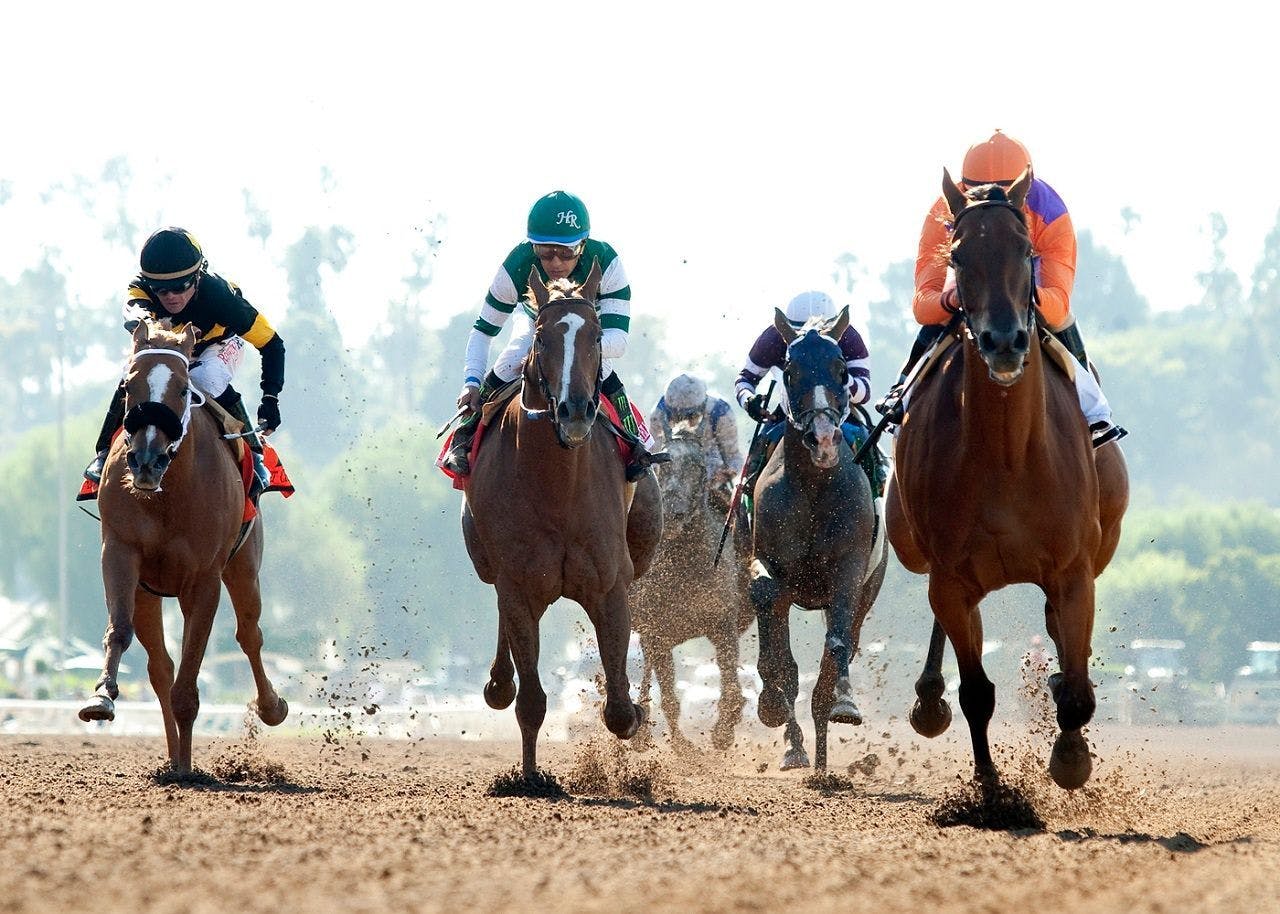How can field size affect betting payoffs?

Racing at Santa Anita (Photo by Benoit Photography)
It’s common to hear horseplayers and racing analysts talk about field size, but they’re not referring to the acreage of open land. They’re referring to the number of horses entered in a race.
The horses entered in a race are referenced as a group by the term “field,” so “field size” is the number of horses in the race. Most of the time, large field sizes are considered positive for betting, and small field sizes are shunned as unfavorable betting opportunities.
But are large fields always a positive? And should you avoid betting small fields? Let’s explore the pros and cons of each.
Large fields
Horseplayers generally like large fields because they’re attractive betting propositions. If you’re playing the trifecta in a 12-horse field, there are 1,320 possible outcomes, whereas a six-horse field presents only 120 combinations to consider. A higher number of possible outcomes often equates to higher betting payoffs and—in many cases—larger betting pools, increasing the likelihood of cashing big tickets.
What are mandatory-payout carryovers, and why are they valuable?
— TwinSpires Racing 🏇 (@TwinSpires) January 19, 2022
Let’s ask @j_Keelerman 👇https://t.co/y93l9aJ7Id
But of course, these positives are irrelevant if you fail to construct a winning ticket. A Pick 6 with 12 horses in each race has over 2,985,984 possible outcomes, but it’s not a great betting proposition if you lack the confidence or betting budget to pursue it thoroughly.
Small fields
Usually (though not always), small field sizes lead to smaller betting payoffs than large fields. A Pick 6 with six horses in each race features only 46,656 possible outcomes, making it 64 times easier to hit than a Pick 6 with 12 horses in each race. Payoffs are bound to be smaller (perhaps dramatically smaller), in part because pool sizes tend to shrink when there are fewer outcomes to consider.
But for some horseplayers, including those with modest betting budgets, small fields can present enticing opportunities. It can be easier to bet with confidence when you feel like you’re analyzing a manageable number of possibilities. And confidence coupled with small field sizes can be the perfect opportunity to bet “cold” exotic wagers. Playing a bet cold (also called straight) means betting on a single outcome—no spreading with multiple horses or backup tickets.
What is a single, and why are they valuable?
— TwinSpires Racing 🏇 (@TwinSpires) August 7, 2021
That's a great question!
Let's ask @J_Keelerman ⬇️ https://t.co/WTuXqaYlAW
Takeaways
In the long run, large fields still present the best opportunity to find good betting value and big payoffs. But you shouldn’t automatically pass on betting small fields. If you’re confident you can construct a profitable ticket, a small field might just make your betting day.
ADVERTISEMENT



